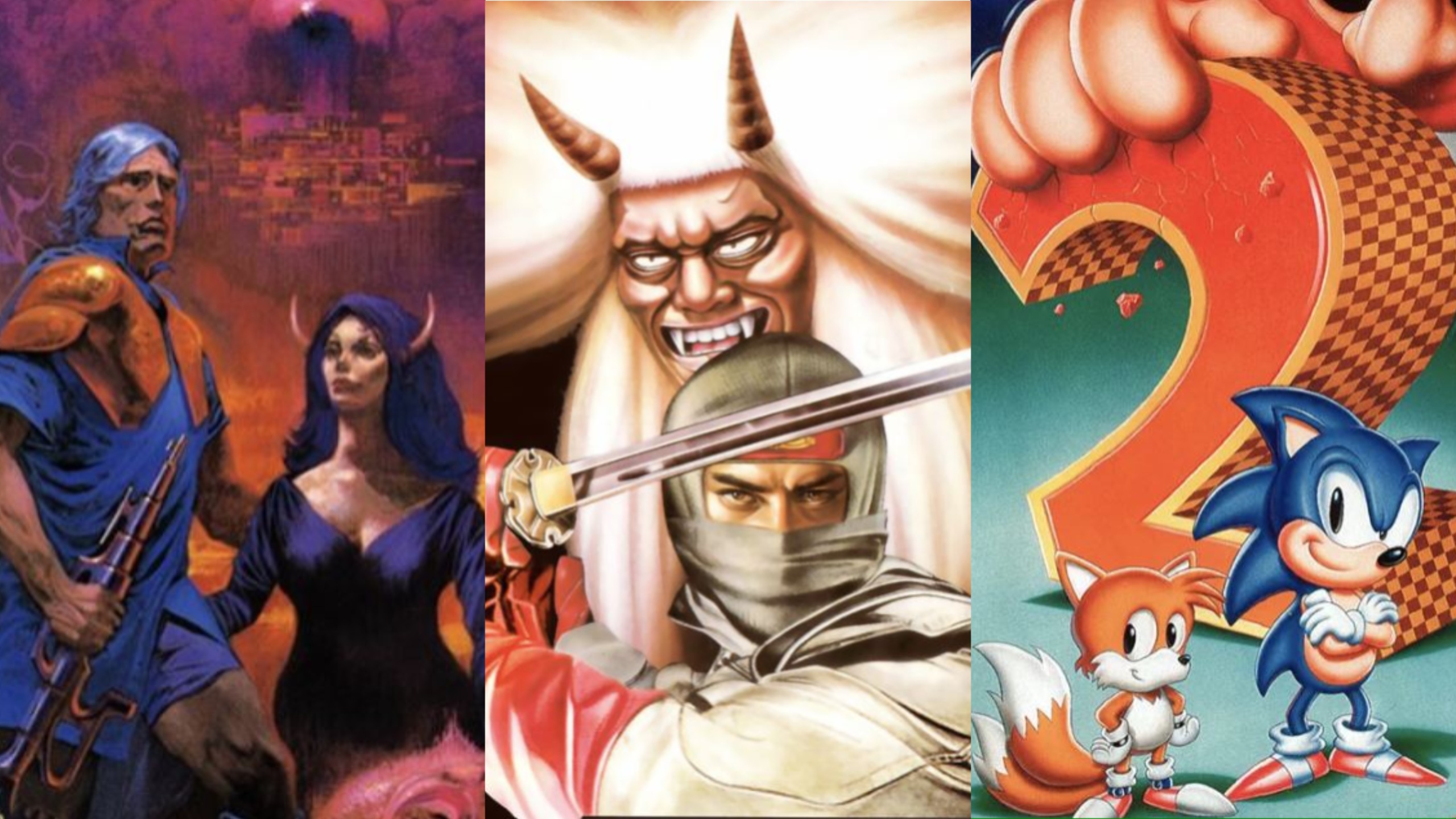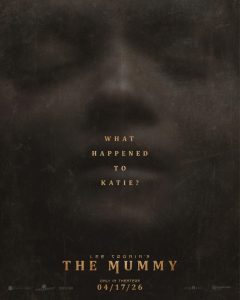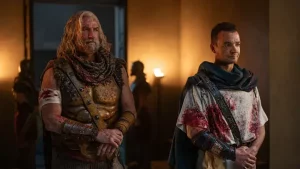
It seems hyperbolic, but soundtracks can make or break a game. Some of the most memorable and much-loved video games in the world are elevated by their scores. They immerse players in the action, set the tone of the narrative, and help frame the gameplay mechanics with intuitive sounds guiding players along their journey.
The SEGA Genesis, which is known as the Mega Drive internationally, was part of the fourth generation of gaming consoles. It boasts a wide variety of classic retro games, many of which contain soundtracks that are highlights of the era. These video games utilize their musical accompaniments to bring genuine depth to the gaming experience. Although sometimes the quality of the game itself is lacking, it’s hard to deny how much those soundtracks contributed to the overall enjoyment.
15. Teenage Mutant Ninja Turtles: The Hyperstone Heist
Developed & published by Konami, Composed by Masahiro Ikariko, Yuichi Takamine, Kaori Kinouchi & Hideto Inoue
TMNT: The Hyperstone Heist is part of a long line of video games inspired by the original comics and the world-famous animated shows. It’s not easy to work within such an established franchise, as the audience has specific expectations for every aspect of the game. From the combat mechanics to the level design, fans will compare the release to past encounters with the series. That extends to the soundtrack, which had to be both familiar and contemporary.
Because of the wide range of influences shaping the Teenage Mutant Ninja Turtles franchise, the musical compositions have had to reflect some of those elements. There’s a comic book quality to the music, which is light, fast-paced, and energetic. But there are some themes and motifs that also feel as if they belong in a Saturday morning cartoon. It would have been natural for the composing team to go back to the well of other TMNT music to create this new soundscape and indeed the majority of the music is from Turtles In Time. That title carved its own space in the saga and Hyperstone Heist piggybacks on its success.
14. Phantasy Star II
Developed & published by SEGA, Composed by Tokuhiko Uwabo
The Phantasy Star series is a somewhat forgotten part of SEGA’s gaming arsenal, but the science fiction role-playing game added a great deal to the RPG genre and helped to shape it for future releases. Not only did the streamlined yet engaging gameplay go on to influence future spinoffs and inspired-by hits, but the music also acted as a point of reference for other titles.
Soft, gentle, and energetic, Phantasy Star II takes a much quieter approach to its soundtrack. Composer Tokuhiko Uwabo continued to recycle sounds in new ways throughout the piece, creating a connected soundscape that formed a feeling of continuity no matter what was happening on the screen. When players encountered action sequences, the music transformed into something a little more combative, but the sound still didn’t lose its original identity. Phantasy Star II tows the line between science fiction and fantasy and its soundtrack effortlessly moves between those genres too.
13. Gunstar Heroes
Developed by Treasure & published by SEGA, Composed by Norio Hanzawa
Upon its release, Gunstar Heroes was a sleeper hit. Receiving plenty of praise and going on to achieve higher-than-expected sales, the run and gun title eventually faded into obscurity. However, years on, a new appreciation has been found for Gunstar Heroes with the title getting named as one of the best SEGA Genesis releases of all time. Interestingly, the music is an often overlooked aspect of its success, likely because the dynamic sound design overpowers those backing tracks.
However, Gunstar Heroes is worth revisiting for its soundtrack, which is both inventive and full of life. Composer Norio Hanzawa has taken the science fiction and futuristic elements of the gameplay and run with them, contributing a score that feels of a completely different era. Guitar riffs and strange, unique sounds, give this score a rather alien quality that never feels out of place in the bombastic SEGA title.
12. NHL ‘94
Developed by High Score Productions & published by EA Sports, Composed by Rob Hubbard
There is a modern legacy of sports titles that were partially influenced by releases on the SEGA Genesis. NHL ‘94 for example is often considered to be a bit of a masterpiece. The ice hockey title did everything right, immersing players in the fast-paced action of this dangerous sport. It’s not easy to craft a soundtrack to accompany a sports title, especially because there aren’t often many places where music can be utilized in this setup. Often in sports games, music won’t actually play during the match, and will instead only serve as a menu accompaniment.
That’s also the case with NHL ‘94 which is limited in the ways it uses its soundtrack. And yet, composer Rob Hubbard has made the most of those opportunities. The music is grand and inviting. It doesn’t take over, but it’s not subtle either, with Hubbard finding the best of both worlds. The music is a throwback combination of motifs and wouldn’t feel out of place in a sports film like Rocky or Karate Kid. It’s definitely an underrated element of NHL ‘94 which has already done so much to change sporting games on consoles.
11. Earthworm Jim
Developed by Shiny Entertainment & Published by Playmates Interactive Entertainment, Composed by Mark Miller
Earthworm Jim is very much a title of its time, but fans have fond memories of the SEGA Genesis run and gun platformer. The premise and gameplay were as bizarre as the title may suggest, so the game needed a soundtrack that matched that energy. Earthworm Jim’s score is both frenetic and utterly entertaining. Although players may be able to hear clear influences from other video game series throughout its score, what cannot be taken away from Mark Miller is the sheer variety of music featured in Earthworm Jim.
Because the game has such a range of levels and gameplay elements, the music is equally dynamic to match. When it was first released critics praised the title’s score and yet the remake of the game completely remixed the original music, supposedly enhancing it. Purists will still defend the original incarnation though, which is undeniably bold. Despite the character of the soundtrack, the music never outshines the rest of the sound design, which has to also be given a nod of appreciation.
10. Golden Axe
Developed & published by SEGA, Composed by You Takada
Sword and sandal, high-fantasy barbarian-esque storytelling was all the rage in the 1980s and Golden Axe really capitalized on that popularity. It would go on to spawn sequels and spinoffs but that original hit was a must-have on the SEGA Genesis. Musically, it had a huge genre to pull from, with fantasy movies and similar video games providing the blueprints for what You Takada could have done.
However, the composer really made the tropes his own and produced an intriguing array of battle-ready, fantastical themes that evolve as the game progresses. There is something quite epic and yet sinister about many of the musical arrangements, which tease oncoming danger and yet still play to the mystical mayhem associated with Golden Axe. There are other games that have taken the ideas formed in Golden Axe’s music and pushed them further, but as a soundscape designed to set the tone of the video game franchise, it really works. The side-scroller hack-and-slash would be worse off without this specific score.
9. Ghouls ‘n Ghosts
Developed & published by SEGA & Capcom, Composed by Tamayo Kawamoto & Tim Follin
Ghouls ‘n Ghosts was a notoriously difficult arcade side-scroller, which eventually moved from its original home to consoles like the SEGA Genesis. The port allowed this frustrating yet hugely compelling fantasy adventure to enter homes across the world, with many getting to play the title for the first time.
However, there’s some controversy surrounding the music that those new players were greeted with. The original arcade version was composed by Tamayo Kawamoto, who helped to define the narrative and tone of Ghouls ‘n Ghosts with his intelligent soundtrack design. However, many Western ports including the SEGA Genesis iteration featured a soundtrack from Tim Follin, who took the essence of what Kawamoto had done but made it his own. Both variations are iconic for their own reasons, but it is fascinating to hear how Follin captured the familiar voice of the game and altered it for a new context and medium. Ghouls ‘n Ghosts’ music is brilliant in its simplicity.
8. Castlevania: Bloodlines
Developed & published by Konami, Composed by Michiru Yamane
The Castlevania series has had such a huge impact on the industry as a whole, with the platform title going from console to console across generations. Bloodlines still holds up remarkably well today, especially when compared to many of its contemporaries. Michiru Yamane brought his talents to the game, building upon what had previously been achieved with the franchise.
With horror and fantasy elements that need to naturally blend into the soundscape, capturing the right tone for Castlevania has always been a challenge. Yamane brought an orchestral and rock edge to the music, an unusual combination that really works within this context and differentiates it from other platformers at the time. Considering the limitations of the SEGA Genesis, Yamana managed to play with sound, bringing a smooth quality to the soundtrack. Bloodlines’ tunes could be played on a grand stage and no one would think twice about it, because of the complexity of the composer’s work.
7. Disney’s Aladdin
Developed Virgin Games USA & published by SEGA, Composed by Donald Griffin
Disney has attempted to take its vault of movies from the screen to consoles for many years and Aladdin is arguably one of the company’s most successful attempts. An adaptation of the famous animated film starring the hero of Agrabah, the platformer was both vibrant and intelligently designed. Although it was notoriously difficult, players still felt they had been drawn into Aladdin’s world, and that’s partially down to the music.
It’s difficult to take such an iconic soundtrack and bring it to a different medium but Donald Griffin used pre-existing music and a few original ones to effectively round out the score. The essence of hits like ‘Arabian Nights,’ ‘A Whole New World,’ and ‘Friend Like Me,’ can all be heard throughout the score, but with a charming retro edge. It would have been simple to apply those classic tunes without much thought, but the way Griffin has molded the music to the gameplay (despite preconceived notions of how the score should play out) is truly commendable.
6. Rocket Knight Adventures
Developed & published by Konami, Composed by Masanori Oouchi, Aki Hata, Michiru Yamane, Masanori Adachi & Hiroshi Kobayashi
Rocket Knight Adventures probably won’t be the first game that comes to mind when contemplating the SEGA Genesis, nor is its music instantly recognizable. However, one of the highlights of the game was its score, which was developed by an ambitious team of musical geniuses who sought to bring something quite unique to the video game landscape.
Rocket Knight Adventures’ score was heavily praised by critics upon the game’s release and for good reason. With jazz undertones, the essence of some of Nintendo’s later musical accomplishments, and a seemingly endless cornucopia of musical arrangements, Rocket Knight Adventures’ soundtrack is truly huge. Somehow familiar and yet incomparable to contemporaries, the music doesn’t ebb and flow to match the pace of the action. Instead, it barrels straight ahead at full speed. That constant momentum ensures that the music just keeps building, and players are in for a treat by the time they reach the climactic finale. A sense of scale is hard to build into a soundtrack with the technological limitations of the SEGA Genesis but Rocket Knight Adventures managed it.
5. The Adventures of Batman & Robin
Developed by Clockwork Tortoise & published by SEGA, Composed by Jesper Kyd
The Adventures of Batman & Robin (which is inspired by the animated show and the comic book series) brought players into the world of Gotham City. The SEGA Genesis iteration of the game was a little faster-paced and relied on its run and gun elements more than other console variations. Although fans bought the game to interact further with the famous DC Comics characters, the endless replayability of the title ensured that they stuck around.
The music, from Jesper Kyd, had to play on the animated show’s themes, but still felt appropriate for the video game world. What he came up with was nothing short of genius. Although the logical route would have been to lean into the heroic aspects of the Batman character in the score, instead Kyd built tension through much more sinister themes. With the enemies as the focus, suddenly the action and combat felt more intense thanks to the impact of the music. It’s an underrated choice, but it’s hard to deny how much the music in The Adventures of Batman & Robin influenced the overall experience.
4. Mortal Kombat II
Developed by Midway & published by Acclaim Entertainment, Composed by Dan Forden & Matt Furniss
The sound of the Mortal Kombat series has massively evolved since its early days. While the franchise launched as a major arcade heavy-hitter, the fighting sequel made its way to the SEGA Genesis to much fanfare. This is where the DNA of the series was forged, with the sequel demonstrating that Mortal Kombat had genuine longevity.
The soundtrack was obviously a big part of that, and reflecting on it years later, Dan Forden and Matt Furniss’ approach to the music was very experimental. They were making choices that were often unseen in the video game industry, scoring Mortal Kombat II as if it was a cinematic masterpiece rather than a SEGA Genesis title. The music was so interesting that a spinoff book about its development and copies of the soundtrack was later released to market the video game. Mortal Kombat II’s soundtrack was especially good at raising the tension as a battle progressed. As a sequel, it paid homage to the music of the original with familiar motifs but expanded upon that soundscape superbly.
3. Sonic The Hedgehog 2
Developed & published by SEGA, Composed by Masato Nakamura
The Sonic series has been a mainstay in SEGA’s archives and a flag bearer for the brand. It’s no surprise that Sonic The Hedgehog 2 performed remarkably well on the SEGA Genesis, with its improved graphics and smoother gameplay. The soundtrack had to surpass the original and convey both speed and momentum. It successfully does so, giving real energy to Sonic’s fast-paced moments, and contributing a whimsical twist to those slower-paced platformer beats.
Composer Masato Nakamura returned to work on this sequel, and that continuity was much appreciated by the fanbase. Nakamura (who was part of the J-pop band ‘Dreams Come True’) wanted a more complex score that progressed as the player moved through the story. Melodically, Sonic The Hedgehog 2 is far from conventional, but what Nakamura was able to achieve with the limited technology of the time has to be commended. Genesis might have tempered his vision, but something magical was born from those limitations.
2. The Revenge Of Shinobi
Developed & published by SEGA, Composed by Yuzo Koshiro
The Shinobi series is a major part of SEGA’s legacy and The Revenge Of Shinobi was the highly anticipated first SEGA Genesis installment for the franchise. It’s still among the console’s greatest games. The hack-and-slash experience brought on Yuzo Koshiro to compose and pick up where original composer Yasuhiro Kawakami left off.
They were big shoes to fill but Koshiro found a unique sound to weave into the narrative. There’s a subtlety to The Revenge Of Shinobi’s score that makes it especially compelling. Those gentle themes act as quite an intriguing contrast to the brutality of the action. There are Japanese influences in the sound, with the tone moving away from the often erratic and fast-paced techno music that had come to define the games of the era. The music of the series would continue to evolve past Revenge, but this entry might just be the best musically of the saga because of its ability to hold back and control the flow of action.
1. Streets Of Rage II
Developed & published by SEGA, Composed by Yuzo Koshiro & Motohiro Kawashima
Streets Of Rage has become a much-loved side-scrolling beat ’em up, which has risen far beyond the ambition of the original entry into the series. Streets Of Rage II set the bar higher with a fantastic array of combo moves, a solid selection of characters, and some genuinely unforgettable combat sequences to fight through. Streets Of Rage II has a particularly iconic soundtrack, composed by Yuzo Koshiro with a few contributions from Motohiro Kawashima.
It’s a chaotic array of tracks, which has an 80s, techno, and disco vibe that initially seemed like a strange choice for the video game genre. Yet, the electronic dance music is a fun inclusion that adds a whimsical energy to an otherwise brutal scene. Koshiro used outdated technology to bring the music to life and set it in the desired era. The soundtrack stands out among the competition due to all of those unusual choices, but it set the tone for the sequels and was emulated again and again across the genre. Its impact is thus undeniable.
The post 15 Best SEGA Genesis Soundtracks Ever appeared first on Den of Geek.












